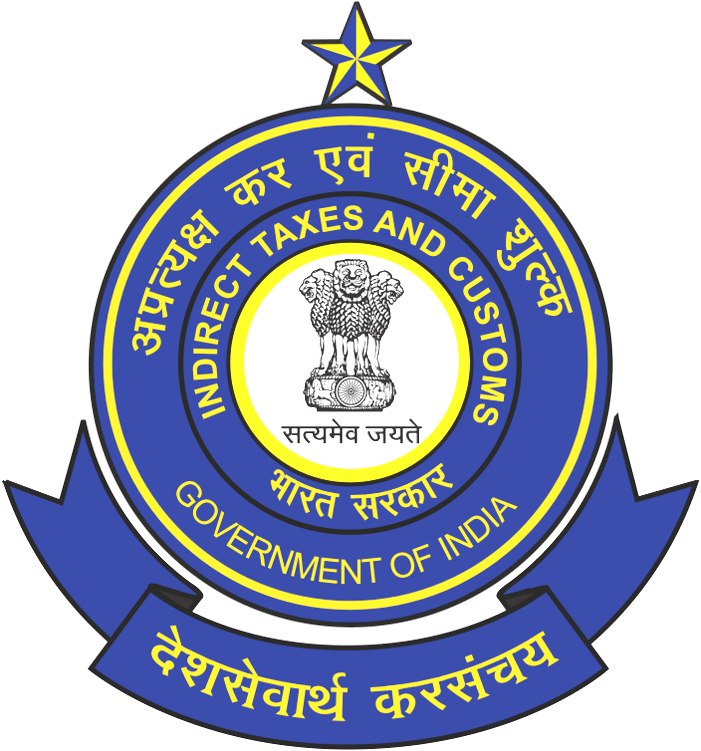About Us
The Chief Commissioner's Office of Customs, GST & Central Excise, (earlier Customs, Central Excise & Service Tax) Bhopal came into existence w.e.f. 06.02.2002. The Chief Commissioner's Office (CCO) is subordinate office to the CBIC (Central Board of Indirect Taxes and Customs), Ministry of Finance, Department of Revenue, New Delhi (website : cbec.gov.in).
CCO’s functions
The (main) function of the Chief Commissioner’s Office (CCO) is to discharge its responsibilities and strive to achieve excellence in its working besides causing due supervision and administration in ensuring the effective functioning of its subordinate GST & Central Excise and Customs Commissionerates in the Zone; for this purpose, assuring –
- the collection of due Government revenue under GST and Customs in a fair, equitable and efficient manner.
- Administering the Government's various economic, tariff and trade policies.
- Facilitating trade and industry including by streamlining and simplifying GST processes and helping Indian business to enhance its competitiveness.
- Creating a climate for voluntary compliance by providing guidance and building mutual trust.
- Combating revenue evasion, commercial frauds and social menace in an effective manner.
- Duly implementing the Central Board of Indirect Taxes and Customs (CBIC)’s laid down policy and instructions.
- Providing valuable inputs, other reports, feedback, etc. to the CBIC and higher authorities and guide the subordinate Commissionerates.
About Goods & Service Tax (GST) Indirect Taxation (w.e.f. 01-07-2017) regime
Briefly, the law relating to Goods and Service Tax viz., the Central GST Act, 2017 (Act No. 12 of 2017) and the (concerned) State GST Act, 2017 was finally brought (legislated) into effect on 01-07-2017 (midnight), based on the constitutional amendment (effected) in this regard. It seeks to replace (subsume) the various earlier indirect taxes levied by the Central Government and State Governments (i.e., 17 kinds of indirect taxes imposed, such as: entry taxes, CVD, SAD Customs, AED, Luxury tax, Entertainment tax, taxes on lottery, betting and gambling; 23 kinds of 23 cesses imposed, such as: cess on tea and coffee, rubber, etc.). The introduction of GST is considered as a path-breaking and innovative step and measure to achieve the nation’s long-cherished goal of (slogan) ‘One Nation – One Tax – One Market’ (seamless and unfettered flow of goods and services without any tax hindrance, as considered earlier) besides improving ease of doing business. The Government’s logo in this regard is given below.
Our Mission is to achieve excellence in the formulation and implementation of Customs and Excise initiatives aimed at:
realising the revenues in a fair, equitable and efficient manner
administering the Government's economic, tariff and trade policies with a practical and pragmatic approach
facilitating trade and industry by streamlining and simplifying Customs and Excise processes and helping Indian business to enhance its competitiveness
creating a climate for voluntary compliance by providing guidance and building mutual trust
combating revenue evasion, commercial frauds and social menace in an effective manner
We shall carry out our tasks with
integrity and judiciousness
courtesy and understanding
objectivity and transparency
promptness and efficiency
We shall encourage and assist voluntary tax compliance by our clients.
To achieve our mission, we would focus on-
Enhancing the use of Information Technology
Streamlining Customs and Excise procedures
Encouraging voluntary compliance
Evolving cooperative initiatives
Assisting in the formulation of Tariff Policies
Combating revenue evasion, commercial frauds and social menace effectively
Measuring conformance to service delivery standards
Developing professionalism and responsibility
 Help Desk
Help Desk
Add GST: GST amount = (Original cost x GST%)/100. Net price = original cost + GST amount.
Remove GST: GST amount = Original cost - [Original cost x {100/(100+GST%)}] Net price = Original cost - GST amount.


